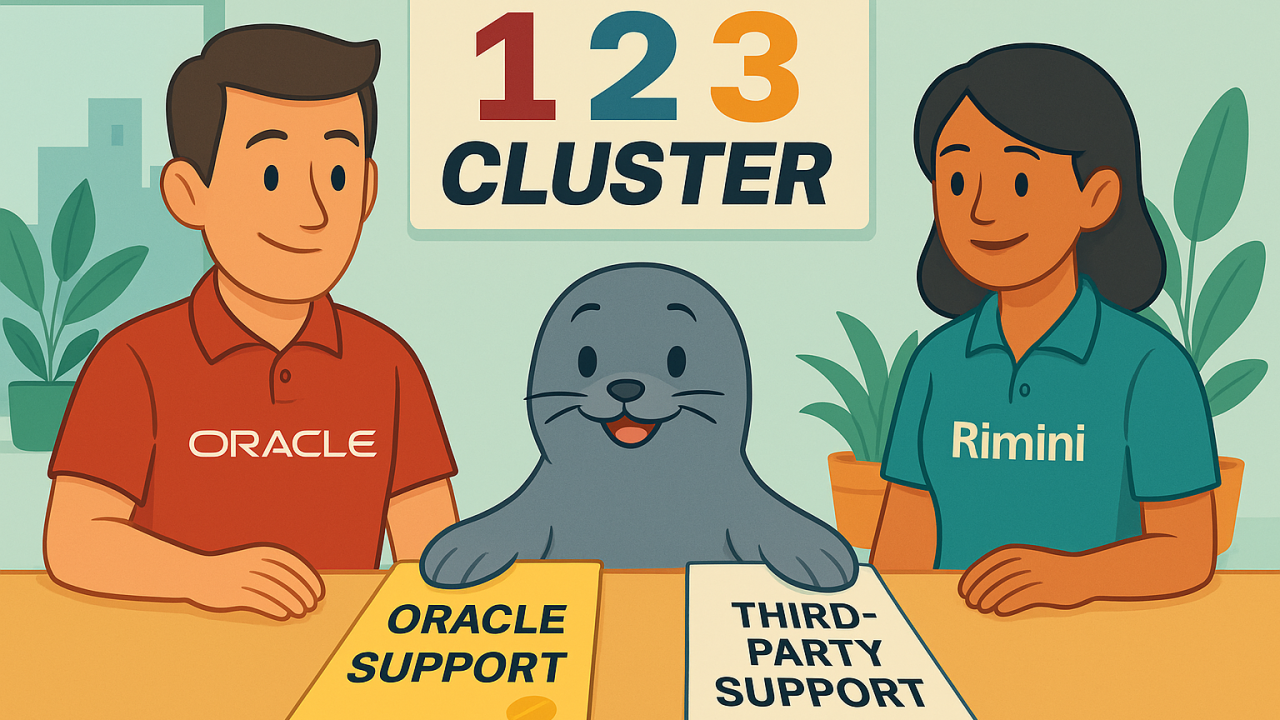
After 25+ years working with Oracle databases, I've seen both sides of the support equation. Today I'm sharing insights on a decision many CIOs and IT leaders face: sticking with Oracle Support vs. exploring third-party alternatives like Rimini Street.
We all know the financial formula: approximately 20% of your initial license cost, every year, forever. But having spent years on the frontlines as an Oracle DBA, I've experienced the hidden costs that don't appear on the invoice:
You become their assistant: Ever feel like you're working for Oracle Support instead of them working for you? The endless requests for specific diagnostics, formatted exactly their way, can consume days of your time.
The troubleshooting waltz: One step at a time, please. Try this, report back. Now try that, report back again. The methodical approach has merit, but the lack of real-time collaboration extends resolution times dramatically.
Management pressure: "That's why we pay them so much!" How many times have you heard this when trying to solve problems internally instead of opening yet another SR?
Credit where it's due - Oracle Support remains the gold standard in many ways:
For mission-critical systems where downtime means millions in lost revenue, these advantages can be invaluable: they're the insurance policy many executives feel comfortable paying for.
Full disclosure: After years as an Oracle DBA, I had the opportunity to work as a support engineer at Rimini Street. The contrast was illuminating.
Significant cost savings - typically 50% or more off Oracle's annual support fees. For enterprises with large Oracle footprints, we're talking millions of dollars annually that can be redirected to innovation rather than maintenance.
Collaborative troubleshooting - direct meetings with engineers who work alongside your team. Almost every significant issue begins with a screen sharing session rather than email exchanges. This human-centric approach often leads to faster resolution times for complex problems.
Personalized support - dedicated resources who know your environment intimately. You'll work with the same engineers repeatedly, building relationships and environment familiarity that pays dividends over time. No more explaining your architecture from scratch with each new ticket.
Flexible SLAs - customized to your business requirements rather than one-size-fits-all policies. Critical issues genuinely receive critical attention, with senior engineers engaged from the start rather than after multiple escalations.
Extended support for older versions - no forced upgrades to maintain support coverage. If your stable Oracle 11g or 12c environment serves your needs perfectly, you can continue running it with full support indefinitely.
It's important to acknowledge that there are scenarios where third-party support reaches its limits. Occasionally, the only solution is a new patch, which only Oracle, as the source code owner, can provide. This represents the fundamental trade-off in the third-party support model.
When evaluating support options, organizations should consider:
Both Oracle's official support and third-party alternatives like Rimini Street offer viable options with distinct advantages and trade-offs. Oracle provides comprehensive support with access to all resources but at premium prices and with sometimes frustrating processes. Third-party support delivers significant cost savings and a more collaborative approach but with limitations on new patches and versions.
The optimal choice depends on your organization's specific circumstances, including database stability, budget constraints, and risk tolerance. Many organizations find that as their Oracle databases mature and stabilize, the value proposition of third-party support becomes increasingly attractive.
Regardless of which path you choose, understanding these differences allows you to make an informed decision that aligns with your organization's priorities and resources.

Automate deployment, scaling, and maintenance of your database clusters to ensure peak performance and reliability.